Charles de Gaulle: Part 1 – Fractious allies
Who was Charles de Gaulle?

In 1938, Winston Churchill described Russia as, “a riddle, wrapped in a mystery, inside an enigma”. During his long and tempestuous relationship with Charles de Gaulle, Churchill must have thought the same of the General on many occasions.
During his lifetime, de Gaulle had to confront many personal and political crises. Amongst others, he was a POW in the First World War. His daughter was born with Down Syndrome. And the Nazis overran his country.
Most scholars agree that his conduct during three critical periods was the foundation stone to the de Gaulle legacy:
1. his escape to London in 1940,
2. granting Algerian independence in 1962, and
3. the 1968 student riots.
Read Parts 1, 2, and 3 of this mini-series in order to discover more details on each of these turning points.
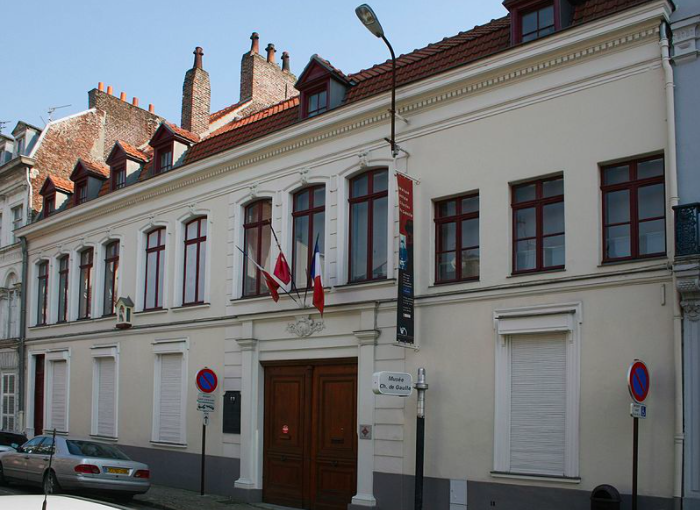
Fractious allies – Part 1
La France a perdu une bataille! Mais la France n’a pas perdu la guerre.
These memorable words from General Charles de Gaulle’s speech to the French nation were broadcast on the BBC in June 1940, soon after he arrived in England. But in France, there were very few listening and those who were listening had no idea who he was.

De Gaulle flew (many say fled) to London from Bordeaux when the Battle of France was lost and the Nazi occupation began. He had no money, no assets, no friends, and (many would have said) no future. He arrived with a small suitcase of clothing and not much else. Ahead of him, there was a difficult tightrope to walk. His self-proclaimed role of the French leader in exile was not universally well-received. Many saw him as having abandoned his country, and his legitimacy in international law was dubious. Pétain was considered the legal head of the French State by most countries.
In August, a French military court tried the General in absentia.
He was deprived of his military rank, his property was confiscated and he was sentenced to death. But his powerful persona, his determination (many say obstinancy) and his vision for the future for France remained undaunted.
Charles de Gaulle – leader of the ‘Free French’
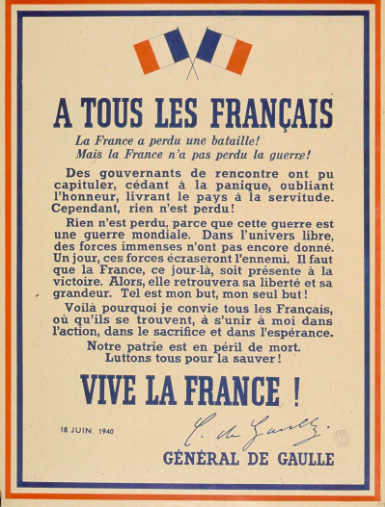
In London, he cast himself in the role of leader of the Free French. But the Americans and the Russians refused to recognise him. Relations between the Allied leaders were complicated, stormy, and quite often bitter. De Gaulle felt that his Anglo-Saxon allies did not treat him as an equal partner. This gave him many opportunities to make a fuss. He was often on the verge of breaking with them because of what he perceived as slights or insults aimed at tarnishing the dignity of France.
Roosevelt, in particular, saw de Gaulle as representing an unstable, weak, and unreliable country. He was shocked by how quickly the French army was routed in 1940. In a personal memo to Churchill, Roosevelt (FDR) described De Gaulle as having a “messianic complex” with “dictatorial” tendencies. And he firmly believed that de Gaulle had no intention of ever granting independence to any French colonial possessions. FDR was convinced (some say determined) that France would never again be a world power.
A starry-eyed lover?
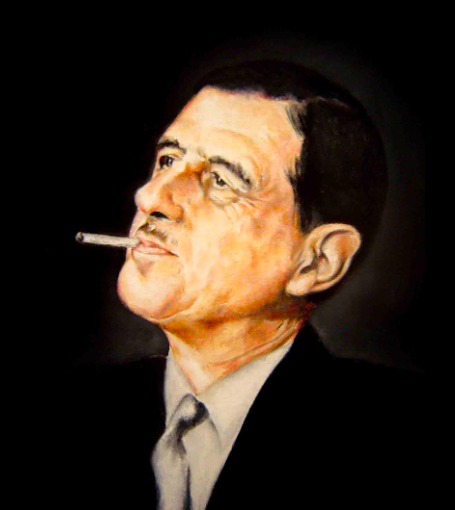
Churchill was essentially a Francophile, and when they were getting on well, he and de Gaulle were like starry-eyed lovers. When they were not, it was daggers drawn.
Their alliance can quite reasonably be characterised as tempestuous, acrimonious, and even vindictive. Quite often it verged on open hostility.
The British Prime Minister was often driven to distraction by what he saw as the General’s intractable, unpredictable, and often obstructive behaviour. De Gaulle saw Churchill as always putting the interests of the British Empire first—and those of France somewhere after that.
Although Churchill and de Gaulle agreed that their primary WW2 objective was the defeat of Hitler, on a few occasions their relations got so heated, they almost went to war with each other.
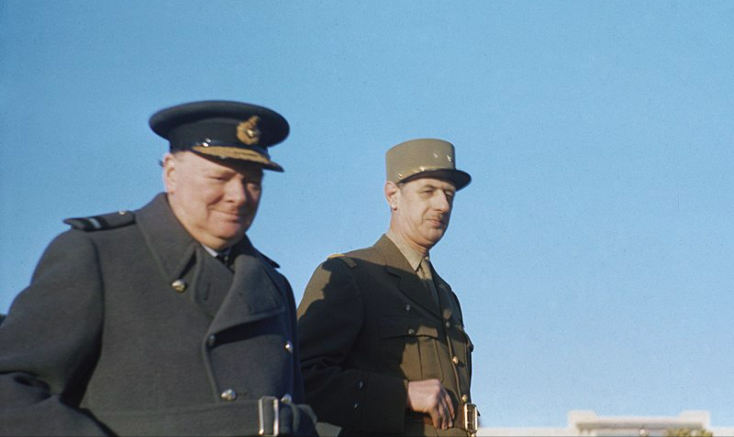
Shortly after the Battle of France was lost, Churchill ordered a Royal Navy battle fleet to open fire on a group of French warships at Mers-el-Kébir in Algeria. Over twelve hundred sailors were killed. De Gaulle called the action “detestable and deplorable,” but eventually accepted that it was preferable to the French fleet falling into Nazi hands.
When the first parachutists were jumping out over Normandy on the eve of D-Day, Churchill had a violent disagreement with the General over an “Ici Londres” radio broadcast. Both men dug in their heels. Eventually, Churchill screamed at an aide that he was seriously considering sending de Gaulle back to Algiers “in chains, if necessary.”
Allied invasion
Unsurprisingly de Gaulle was incensed at being kept in the dark about the Allied invasion of Normandy on 6 June.
The Allies stopped him from setting foot in France until 14 June. This was an affront he never forgot.
In May 1945, French troops continued to occupy Syria, but thousands of demonstrators took to the streets in Damascus demanding independence from France. French troops fired on the crowds. Churchill demanded a ceasefire and threatened intervention. De Gaulle ordered a french warship off Beirut to open fire on the British if necessary. It became known as the Levant Crisis. Fortunately, the incident was defused without conflict, but De Gaulle called it “a stab in the back” by the British.
Churchill and de Gaulle
Let there be no misunderstanding, the enmity between de Gaulle and Churchill was potentially disastrous on several occasions. Churchill wrote to Roosevelt that he considered de Gaulle to be, “the worst enemy of France,” and, “one of the greatest dangers to European peace.”
Francois Kersody, the French historian, summed it up like this:
De Gaulle appeared to be permanently engaged in action on two fronts. He waged a public war against Vichy and the Germans, and a private war against the British Admiralty, the Air Ministry, the War Office, the Intelligence Service, the Foreign Office, the British Prime Minister, the US State Department, and the president of the United States.
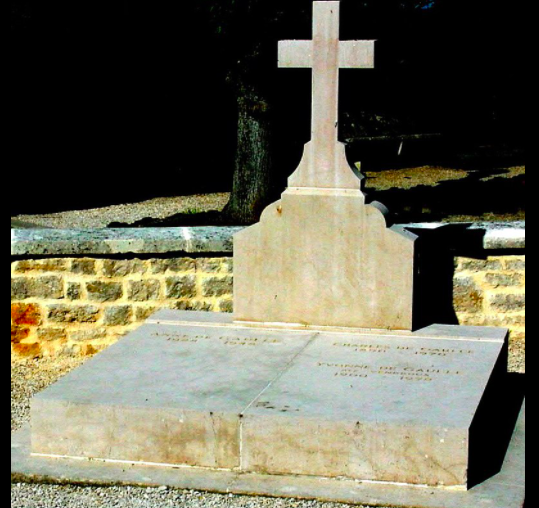
Were you familiar with these ‘turning points’ in the life & career of Charles de Gaulle? Share your thoughts in the comments below.
This Series:
Most scholars agree that his conduct during three critical periods was the foundation stone to the de Gaulle legacy:
1. Escape to London in 1940, – Part 1 (this one)
2. Granting of Algerian independence in 1962, and – Part 2.
3. the 1968 student riots – Part 3.
Read Parts 2, and 3 of this mini-series
in order to discover more details on each of these turning points.
On FRANCE 2 in November 2020
they are showing the commencement of the
REPLAY of mini-series ‘Le Grand Charles’.
Le Grand Charles is a 2006 French TV Mini-Series on the life of Charles de Gaulle from 1939 to 1959, written and directed by Bernard Stora.
Source:
Many of the details in this article have been gleaned from Julian Jackson’s monumental 2018 biography ‘Charles de Gaulle’.
Image Credits:
1. De Gaulle during his presidency via wikipedia
2. De Gaulle’s birthplace Lille via wikipedia
3. Broadcasting on BBC via Wikipedia
4. De Gaulle exhorts the French to resist via Wikipedia
5. With Churchill at Marrakesh via Wikipedia
6. De Gaulle Grave at Colombey-les-Deus-Eglises via Wikipedia
7. Portrait by Donald Sheridan via Wikipedia






